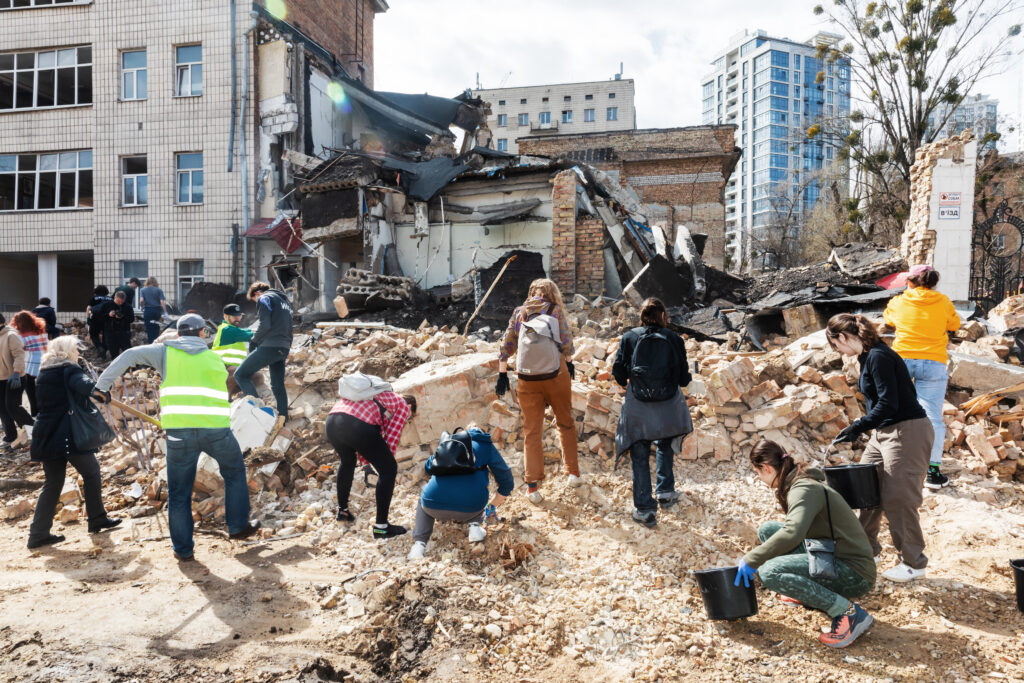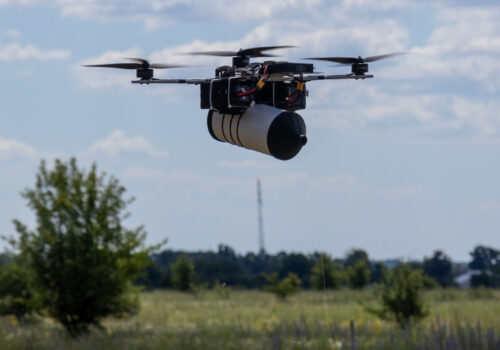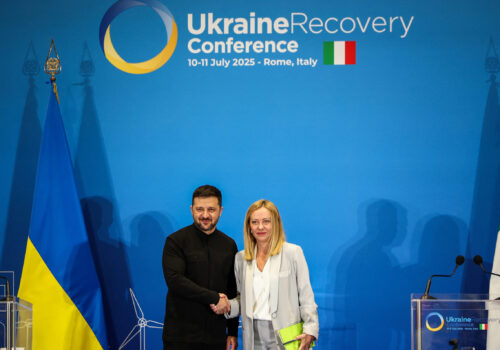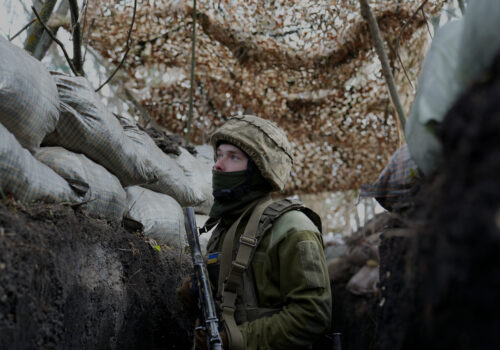There was something slightly surreal about attending the Ukraine Recovery Conference in Rome on July 10-11 and talking about reconstruction while my hometown, Kyiv, and many other Ukrainian cities were under relentless Russian bombardment. This jarring reality has helped fuel a degree of scepticism toward the entire concept of staging a recovery conference in the midst of a full-scale war. Some of the criticism aimed at the URC is valid, but much of the negativity misses the bigger picture.
The 2025 URC event was the largest so far in terms of participants and featured solid high-level representation, with national leaders including Georgia Meloni, Friedrich Merz, Pedro Sanchez, Donald Tusk, Maia Sandu, and Petr Pavel among the speakers. All reiterated their backing for the Ukrainian war effort and their support for Ukraine’s EU membership bid. Dozens of agreements were signed pledging international aid and investment.
The size of this year’s conference was particularly significant. Over 6,000 delegates spent two days making connections, sharing experiences, finding new partners, or simply expanding the community of people interested in making Ukraine a success story.
In just two days, I met a wide range of people engaged in efforts to build a better Ukraine. This included Ukrainian veterans leading rehabilitation initiatives, charities expanding their operations in Ukraine, American business owners trying to bring green energy facilities to Ukraine, and Ukrainian architects designing underground shelters. Many law firms were present, offering advice to companies seeking to enter the Ukrainian market. New relationships established in Rome could end up bringing a wide range of benefits to Ukraine.
Stay updated
As the world watches the Russian invasion of Ukraine unfold, UkraineAlert delivers the best Atlantic Council expert insight and analysis on Ukraine twice a week directly to your inbox.
The scale of destruction and trauma in today’s Ukraine is daunting. Dozens of towns and cities lie in ruins. Millions have been forced to flee their homes. Every fifth person is a veteran or has a family member who has served in the armed forces, while between 30 and 50 percent of the Ukrainian population require mental health support. Addressing these unprecedented challenges will require huge effort and bold solutions.
Clearly, the top priority is to defend Ukraine and prevent further destruction and loss of life. For the first time, this year’s conference featured a focus on military issues including defense tech innovation and investment in key areas such as drone production. Many participants reiterated that Europe as a whole cannot be truly secure without Ukrainian victory.
Europeans are also increasingly acknowledging the need to learn from Ukraine as they look to defend themselves against the mounting threat posed by Russia. Slowly but surely, the rhetoric is shifting away from humanitarian support for Ukraine as a country under attack, toward recognition of the need to invest in Ukraine as a country that will play a vital role in the future of European security. This change in tone was on full display in Rome.
Eurasia Center events

Not everything about this year’s conference was ideal. The event would benefit from an extended schedule lasting more than two days. It would also help to have fewer overlapping sessions. The current format meant impressive initiatives often only received a few minutes of attention. Meanwhile, lack of audience interaction felt like a missed opportunity given the thousands of well-informed and experienced professionals in attendance from a diverse range of sectors and different countries.
Perhaps the most striking aspect of this year’s conference was the human dimension. Key themes included the return of refugees, engagement with the Ukrainian diaspora, integration of internally displaced people, and the need for Ukrainian society to prepare for the eventual reintegration of hundreds of thousands of military veterans. Participants also discussed labor shortages and investment in Ukraine’s education system.
My overall conviction is that the Ukraine Recovery Conference has immense value in strengthening Ukraine today and shaping the country’s future. Russia is trying to destroy Ukraine by inflicting death by a thousand cuts. “We need to find 1000 partnerships that will allow Ukraine to persevere in this war of attrition, achieve technological and strategic breakthroughs, and ultimately win this war,” noted my Chatham House colleague Orysia Lutsevych. The URC format can help do just that.
Supporting Ukraine’s wartime recovery and reconstruction is a good way to boost resilience by giving Ukrainians a greater sense of confidence in the future. Crucially, this approach also helps provide urgently needed practical support in a timely fashion. Neither Ukraine nor the country’s partners can afford to wait until the war is over before addressing the many profound security, economic, and social issues arising from Russia’s invasion. The Ukraine Recovery Conference is the best tool to facilitate this process.
Anna Morgan is manager of the Ukraine Forum at Chatham House.
Further reading
The views expressed in UkraineAlert are solely those of the authors and do not necessarily reflect the views of the Atlantic Council, its staff, or its supporters.

The Eurasia Center’s mission is to enhance transatlantic cooperation in promoting stability, democratic values, and prosperity in Eurasia, from Eastern Europe and Turkey in the West to the Caucasus, Russia, and Central Asia in the East.
Follow us on social media
and support our work
Image: Mykhaylo Palinchak / SOPA Images via Reuters Connect




